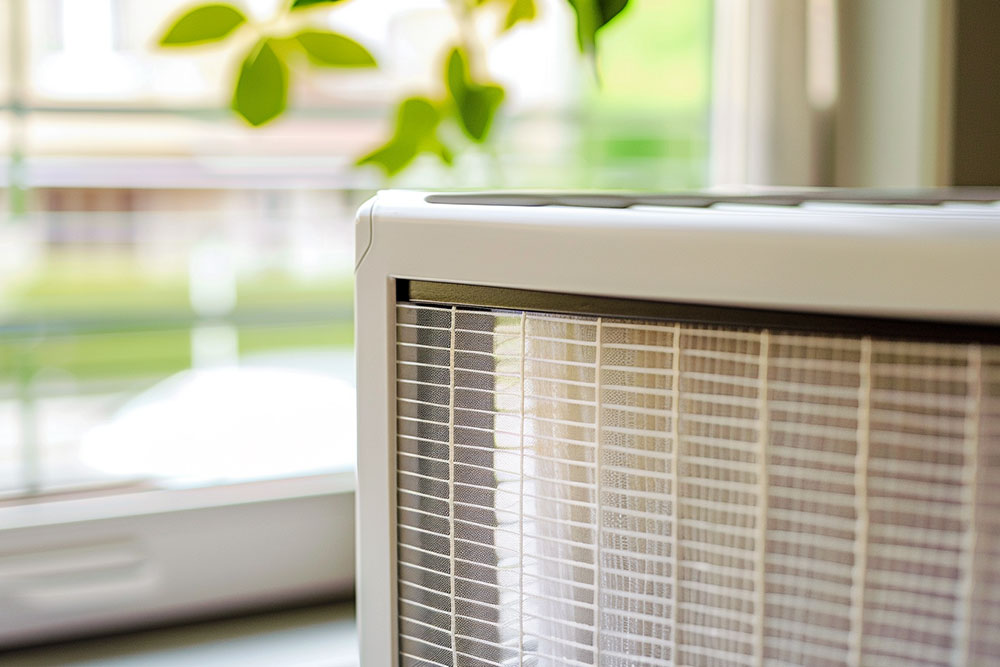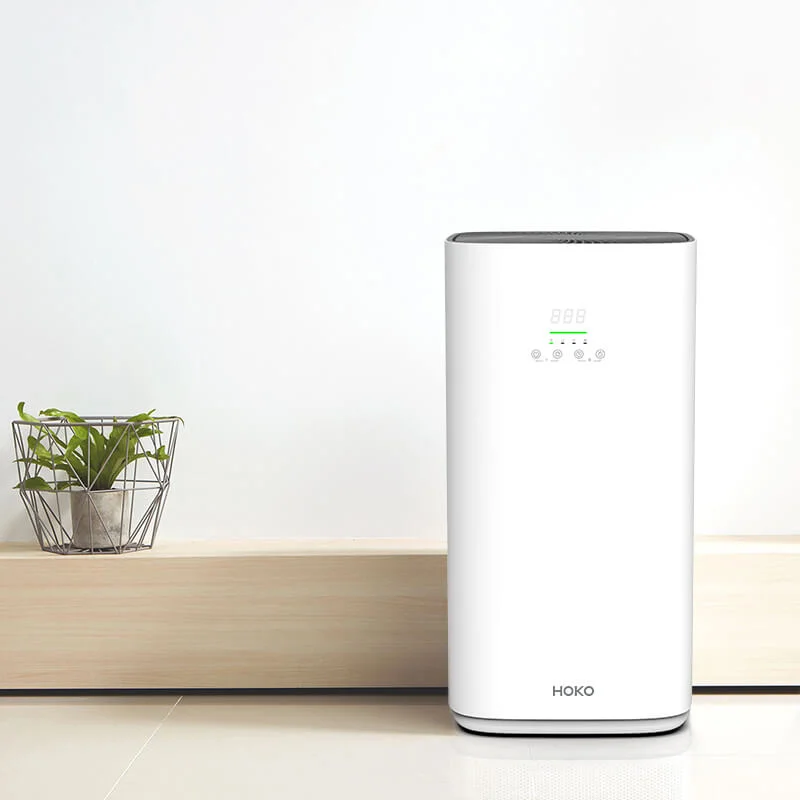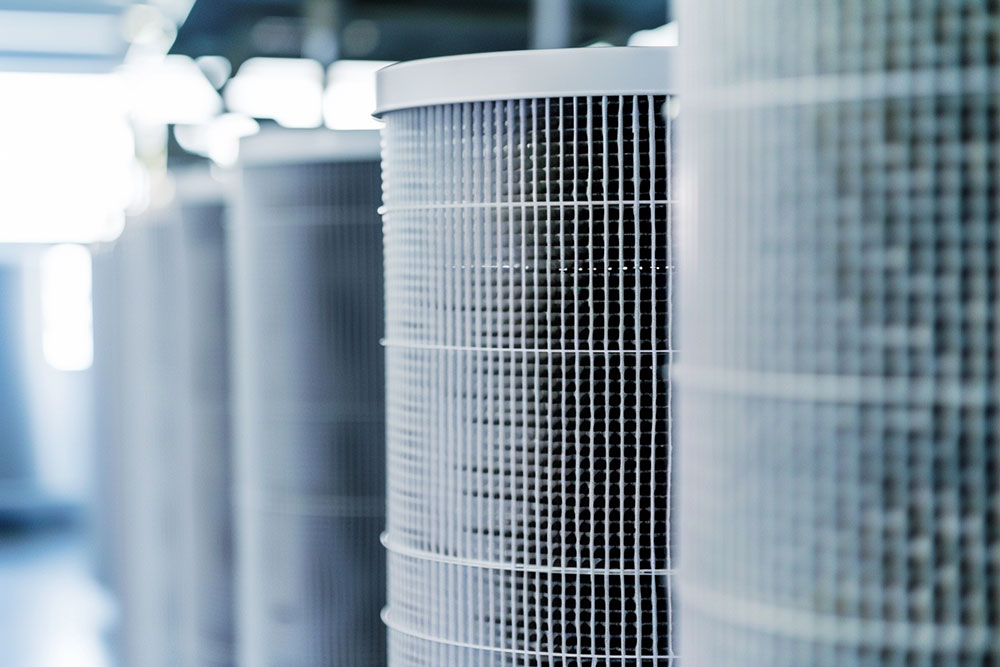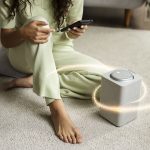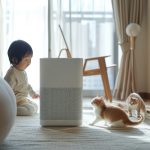Selecting the right air purifier filter is critically important for keeping your indoor air clean and healthy. Electrostatic Air Filters and High Efficiency Particulate Air (HEPA) Filters are two top choices. This article will look closely at both options. We’ll talk about how often you need to replace them, what they cost, and how well they clean the air. We’ll also discuss what it’s like to use and maintain each type.
Our goal is to give you all the information you need to choose the air filter that will work best for you. We’ll compare key features to make the choice clear. With the right filter in hand, you’ll be well equipped to create a healthier indoor environment.
Easy Cleaning Air Filters
Let’s talk about a cool new thing in air cleaning tech: electrostatic air filters. Basically, these filters use static electricity to pull in and trap dust, pollen, and smoke. They have a bunch of metal layers designed to make the air ions, which makes these pollutants stick. This way, we catch more of the dirty stuff in the air, helping to clean up our living spaces.
What’s great about these filters? Well, they’re good for the planet. You can wash them instead of throwing them out, which cuts down on waste. They’re also energy savers, reducing the power used by your air system. This saves you money over time. Plus, they’re really good at trapping even tiny things in the air, which can help make your indoor space just that little bit better.
Of course, we should mention a few downsides. They struggle with very small particles like bacteria and viruses – this is where standard HEPA filters do better. And you have to keep them clean. If you don’t, they won’t work as well. They can be a bit pricey to start with, and if you live somewhere really damp, you might need to think about mold. You can use these filters all over the place, at home, or even in hospitals. They show we can have clean air and be kind to the planet at the same time. Though they’re good at saving energy and catching dirt, we need to compare them to regular HEPA filters. In the end, what matters most is the air quality you need and how much you are willing to spend. By knowing this, you can make better choices for cleaner air at home.
Choosing the Right Air Filter
While electrostatic air filters excel in trapping various pollutants like dust, pollen, and smoke, it’s crucial to highlight that they are not the best option for capturing ultrafine particles, including some bacteria and viruses. This is a domain where High-Efficiency Particulate Air (HEPA) filters have a distinct advantage, as they can filter particles as small as 0.3 microns with a 99.97% efficiency. Therefore, when prioritizing air purification needs, especially in environments requiring sterile conditions like hospitals or households with high susceptibility to airborne diseases, it might be worth considering a combination of filters or opting for HEPA filters for comprehensive air cleaning. Always assess specific air quality needs against the capabilities of different filter types to ensure optimal indoor air quality.
HEPA Filters
HEPA filters have a unique history. They were created to trap radioactive particles. Nowadays, they are vital for cleaning air in many places. These filters can capture 99.97% of tiny airborne particles. These particles are as small as 0.3 microns. This makes environments free from dust, pollen, and bacteria. Other pollutants are also removed.
HEPA filters are made from a mix of glass and synthetic fibers. These materials form a complex mesh. This mesh can trap particles in three ways. First, there’s interception, then impaction, and finally diffusion. This system is powerful. It can grab both big pollutants and tiny ones. It uses something called Brownian motion to do this.
Two types of HEPA filters are key. These are True HEPA and HEPA-type. True HEPA filters are very efficient. They diligently remove almost all tiny contaminants. HEPA-type filters are a cheaper option. They’re still good but a little less efficient. Nonetheless, we find these filters everywhere. They are even in vacuum cleaners and HVAC systems. They are especially common in healthcare settings. Their ability to purify air is unmatched.
We also need to think about how long a HEPA filter can last. HEPA filters are not like electrostatic air filters. You need to change them regularly to keep them working well. You usually need to do this every 12-18 months at home. This timeline may be less in other settings with more pollutants. Despite their many benefits, HEPA filters can be costly. Upkeep costs and a rise in energy usage due to airflow resistance need consideration. But, these filters do promote health and wellbeing. They improve air quality. The cost is high but the payoff is large and meaningful. They have a big role in creating safer and cleaner indoor environments.
Unleash the Power of Pure Air
Looking to create a safer and cleaner indoor environment? Discover our advanced True HEPA Home Air Purifier CADR410. With its potent H13 HEPA filter, this air purifier obliterates formaldehyde, bacteria, and viruses, ensuring a healthier space for you and your loved ones. It’s top-notch and robust, perfect for rooms up to 48m².
Examining Filter Replacement Schedules
When you compare electrostatic and HEPA air filters, there’s a big difference in how often they need changing. This has a lot to do with how each type is made and how they work.
Electrostatic filters are designed to last a long time. Manufacturers often claim these filters can last from 5 to 10 years if taken care of properly. But just because they can last this long, doesn’t mean you can forget about them. They’ll need a good clean every month to keep doing their job well. If you use them a lot, or if you have allergies, you might need to clean them more often.
HEPA filters are a different story. They aren’t built to be cleaned and reused, so you’ll have to replace them entirely. How often depends on your situation. In an average home, you’ll likely need a new filter every 12 to 18 months. In an air purifier, which works much harder, you might need a new filter as often as every 3 to 6 months. Places like hospitals need super clean air, so they replace their filters every half year.
Price is another important factor. Electrostatic filters might be more expensive at first, but they could save you money in the long run because they last so long. It’s a different story with HEPA filters, which need to be replaced regularly—that’s an ongoing cost. There’s also the added effect on the environment from the extra waste.
In the end, the choice between these two types of air filters comes down to what’s most important to you. You might value low-maintenance, your bank account, or doing your bit for the environment. It’s all about understanding that there’s no one-size-fits-all option. Filter choice is a personal decision, guided by your unique needs and environment.
Thinking About Costs
When deciding between electrostatic and HEPA air filters, you have to look at all the costs. First, the selling price. Electrostatic filters cost between $30 to $100, which might be attractive if you’re budget-conscious. HEPA filters are pricier, going from $80 to more than $200. But their higher price reflects their better ability to trap tiny particles.
Next, you need to think about the cost of replacements. You can wash and reuse electrostatic filters, so you don’t need to replace them often. Replacing HEPA filters, on the other hand, can be costly in the long run. They can’t be washed or reused, so you need to replace them regularly.
Maintenance costs are another factor. Electrostatic filters can be cheaper to maintain because you can reuse them, but they do use more electricity. HEPA filters don’t have that electricity cost, but replacing them can be more expensive over time.
In the long run, you might save more with electrostatic filters. This is true even though HEPA filters are better at purifying the air, which could be worth the higher price to those who prioritize air quality.
When looking at cost versus efficiency, the decision gets more complex. HEPA’s ability to trap finer particles makes it great for those with health concerns, despite its higher price. Electrostatic filters, while cheaper at first, might lose their effectiveness if not properly maintained, possibly impacting air quality.
Also consider the hidden costs of professional installation and energy consumption. Electrostatic filters can lower energy use because they allow air to flow more easily. In contrast, HEPA filters can strain HVAC systems and increase energy costs.
Please note that while both electrostatic and HEPA filters serve to improve indoor air quality, the nature of the particles they are best suited to capture varies. Electrostatic filters are particularly effective at trapping larger particles, such as dust and pollen. On the other hand, HEPA filters excel at capturing much smaller particles, including many bacteria and viruses, due to their finer mesh. This difference significantly impacts individuals with specific health concerns, such as allergies or respiratory issues.
In the end, your choice depends on what’s most important to you – the initial costs, ongoing expenses, the impact on your health, and energy efficiency. Taking a comprehensive look ensures an effective and sustainable decision that best enhances personal wellbeing and preserves the environment’s health.
Air Filters: Making the Right Choice
Air filters can do wonders for cleaning dust and other particles from our air. Electrostatic air filters are a popular choice. They have layers of metal that get charged up when air flows through them. This pulls in pollutants like a magnet. They’re not just great air cleaners but can be used again and again. A step forward in eco-friendly air cleaning!
HEPA filters trap tiny pollutants, some as small as 0.3 microns. This includes pollen, mold spores, and smoke. They’re really good at keeping your air clean.
When you’re choosing a filter, think about what you need. Electrostatic filters are good for bigger particles and are easy to use. HEPA filters are better for fighting fine pollutants. It’s about getting the right filter for your needs. Need to seriously cut down allergens? Go for HEPA. Want a reusable, earth-friendly filter? Try electrostatic.
Both types of filters aim to make our environments healthier, but in different ways. Understanding this can help you pick the best one. You can turn your home or work into a clean air haven by making the best choice for your needs.
User Experience and Maintenance Demands
Electrostatic air filters and HEPA filters are both great. But understanding their user experience and how much work they need can help you choose. First, electrostatic filters are user-friendly. They’re easy to put in and take out. Plus, they’re really good at pulling in dust from the air around you. This makes the air cleaner and better to breathe. They’re also quiet and use less energy.
However, if you want the ultimate in clean air, HEPA filters are a better pick. They capture almost every particle in the air. They do make some noise, but usually, it’s not enough to bother most people because it fades into the background noise.
For people with allergies or breathing problems, HEPA filters are perfect. They’re fantastic at filtering out things that could cause an allergic reaction.
Upkeep is also a thing to consider. Electrostatic filters come out on top because you can use them again after cleaning. All you need to do is rinse it or vacuum it to keep it working. Initially, they cost a bit more, but down the line, you’ll save money. With HEPA filters, the cost over time is more because you have to replace them periodically. But, it’s worth it for the efficiency they offer.
In the end, whether you choose electrostatic or HEPA filters depends on what you need. Maybe you have health problems or live in an area with bad air quality. Or perhaps you need to think about your budget before making a final decision. The important thing is to know that cleaning or replacing these filters is key to keep your air clean and increase the lifespan of the unit.
Electrostatic and HEPA filters each have their own benefits. They offer different solutions for different air problems. So, the decision depends on effectiveness, cost and how much maintenance you’re willing to do. Electrostatic filters cost less upfront and require less work, while HEPA filters are better at actually filtering air. The right filter for you all depends on your specific needs. But with this information at your fingertips, you can make the best decision for your health and your wallet.
